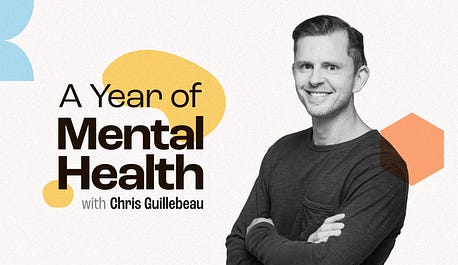Stories are all-powerful. If you want to write a hit screenplay, give a viral TED talk, or just close the sale … you need a good story. The stories we tell ourselves are no exception. These stories often take on a running monologue of self-analysis. We can uplift and encourage ourselves, or we can criticize and discourage ourselves. The narrative becomes all the more powerful when it arrives from a primary source. After all, who knows you better than you know yourself? One of these narratives—the uplifting one—is much better than the other. If you find yourself repeatedly telling yourself a critical story, you’d be well served by changing the narrative. But here lies a problem. Most of us can’t just decide to be positive all of a sudden. It’s not a switch we can flip when we find ourselves in a darkened room. Why not? Because stories are powerful! If you already believe one story, swapping it out for another can be difficult. Telling someone to change their narrative is a lot like telling a stressed-out person to relax: it doesn’t tend to be very effective. The Solution Is to Choose a Believable NarrativeI’m not usually a fan of saying “be realistic,” because reality is constructed. You can change your reality. Your reality may be subjectively (or even objectively) different from someone else’s. In this case, though, being realistic—by your own standard of what you believe—can be helpful. After all, you have to believe the narrative you’re trying to adopt! If you struggle with sticking to a habit, the wrong approach would be to tell yourself a story that you’ll never fail again:
The better way is to first figure out a story you can believe. Such as:
Naturally, I’ve been trying out this experiment on myself. The new book I’m publishing next year took longer to write than I’d prefer. For a while, it was quite a struggle to finalize the chapter selection and find the flow. At some point in the process, my inner narrative around the book became quite negative:
Of course, this narrative isn’t very helpful. You don’t need a Ph.D. in Clinical Psychology to see that the narrative was undermining the actual work, either somewhat or considerably. But the counter-narrative seemed implausible to me. I couldn’t simply tell myself:
Why couldn’t I just tell myself this? Because I wouldn’t believe it. I’ve been trying to develop a believable narrative, one that will be more positive while also being possible. Something like this (I’ll switch to second person voice here, which is how I often speak to myself):
You get the idea. (And yeah, when I talk to myself I tend to be wordy.) Choose a Story That's Positive But BelievableThink of it this way: you have to believe in yourself, and you have to believe yourself. Continuously telling negative stories about yourself has consequences. Over time, you start to model the very behavior you’re blaming yourself for, and the cycle is hard to break. Instead of overpromising (“everything will be wonderful”) find a way to tell yourself something uplifting/positive/helpful and realistic. What conditions do you need for your believable narrative? What will you change to feel the way you want to feel? You’re currently a free subscriber to 🌻 A Year of Mental Health. For the full experience, consider upgrading! |
Friday, December 6, 2024
Change Your Narrative in a Believable Way
Subscribe to:
Post Comments (Atom)
Bicam committee keeps slashed budget for VP Sara
No go, no way: In the end, the bicameral conference committee backed the House move to trim VP Sara Duterte's office budget next year by...

-
insidecroydon posted: " Become a Patron! What's on inside Croydon: Click here for the latest events listing...



No comments:
Post a Comment